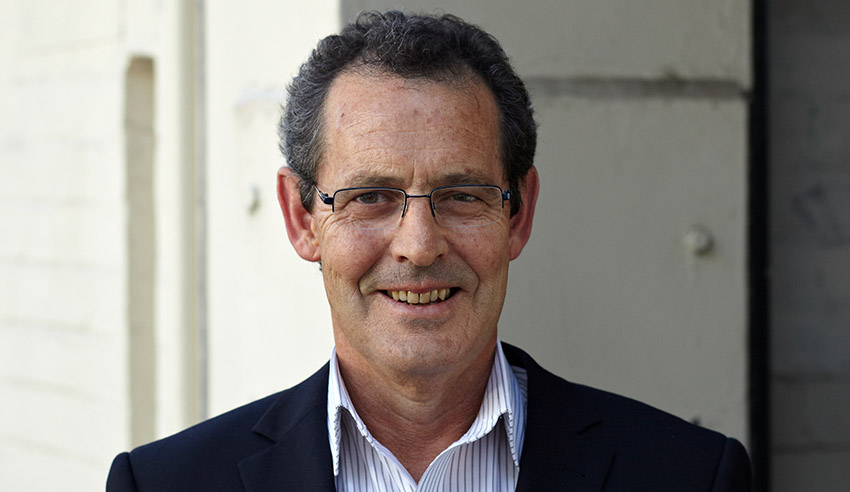Legal Services Commissioner vows to be ‘real instigator’ for changing sex harassment culture
With 33,000 practising solicitors in New South Wales, regulation alone cannot police sexual harassment — change must come at a cultural level, which the state’s Legal Services Commissioner wants to help drive.

In conversation with Lawyers Weekly, Commissioner John McKenzie (pictured), of the Office of the Legal Services Commissioner, said there will never be enough regulators with enough resources to “be the policeman on the beat” eradicating workplace misconduct in the legal profession.
To continue reading the rest of this article, please log in.
Create free account to get unlimited news articles and more!
As such, he said, the LSC is aiming to contribute to changing the culture within the profession so that, moving forward, the issue is dealt with “where it should always be dealt with”, at the legal practice level.
“We want to be a real instigator to [change]… so that there is a culture in place in every law practice that actively persuades and lets it be known that it is simply not acceptable for this behaviour to take place, and to as far as possible, to eradicate it in the first place, but at the same time noting human nature as it is and that there’s never going to be a perfect solution like that,” he said.
“It’s our end goal that every law practice has not only policies but real procedures and nominated people who may be suitable for the task of being the confidential person who the person subjected to this type of behaviour can, with great confidence, go to in a very confidential manner so that there is a far greater and more supportive treatment of the reporter, and more serious acceptance that the huge overwhelming majority of all such reports are accurate and are not made up, and to take them seriously, and to put into place the appropriate response from the law practice leadership and principles.”
Mr McKenzie’s comments follow this week’s callout in NSW for disclosures via its new telephone service, through which persons can make informal disclosures (anonymous, if desired) to trained professionals about conduct issues in legal workplaces.
When asked why OLSC has set up the telephone service for NSW practitioners, Mr McKenzie said that, as the supervising legal regulator in the state, he receives a “very small number of formal complaints”.
Formal complaint numbers remain low, he explained, because “the people who are the subject of this harassment and bullying are junior and often young in years, but not necessarily terribly young. It’s all a relative thing about power”.
“In the legal profession, reputation is such an important thing for one’s career and one’s career progression. Unfortunately, what appears to be the care is that although the incidents, I accept, is really unacceptably high of this behavior, and that’s been disclosed in research survey after research survey, he said.
“But the figures that are consistently reported from confidential reporting of such surveys seriously over an excess if the actual formal complaints that we actually get. And I, as a regulator, wanted to try and change this dynamic so that I’m not waiting on simply formal complaints to come in, but I’m wanting to start to at least open avenues to people who have either suffered this behavior or have witnessed it, to start disclosing what their comfortable in disclosing with us on the assurance that they will control what we do with the information.”
It may well be, he mused, that after a “good, supportive interaction with trained staff” that a person may not wish to take a complaint further and formalise it, but — from a data perspective — OLSC can be in a better position to appreciate the context around the reporting of such matters.
“So, I’m interested in seeing if I start to get a real, shall we say, pattern of similar complaints about one law practice, even though the people are not wanting to go on the record themselves individually, nor wanting to name perhaps any individual perpetrators.”
The regulator will continue to explore the most supportive and hospitable mediums through which disclosures can be made about workplace sexual harassment, Mr McKenzie continued, so as to ensure cultural change can be fast-tracked.
Later this year, he noted, OLSC will be launching an online platform for self-reporting in a confidential fashion, which will be done in conjunction with PyschSafe principal consultant Dr Rebecca Michalak.
In acknowledging the work of advocates like Ms Michalak, Mr McKenzie said the legal profession and its regulators must accept that, as a whole, it “has been unfortunately not mindful enough of the serious situation that has been the reality for really quite some time”.
“Our responsibility is in a very real sense, to take constructive action wherever we come upon instances that the law is not being followed in a very, very serious manner that deals with the entitlement of every person, and that includes every lawyer and every non-lawyer who works in a law practice, to have a safe working environment,” he concluded.
Earlier this week, Lawyers Weekly reported that a lack of continuity and communication between the different stages of criminal justice is throwing up a number of barriers to sexual assault survivors navigating Australia’s justice system.






